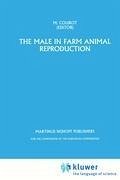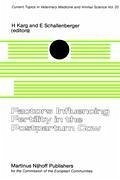
Endocrines and Osmoregulation
A Comparative Account in Vertebrates
Versandkostenfrei!
Versandfertig in 1-2 Wochen
115,99 €
inkl. MwSt.
Weitere Ausgaben:

PAYBACK Punkte
58 °P sammeln!
The opportunity to prepare a second edition of a book that was originally written 30 years ago has provided me with both a challenge and a source of pleas over ure; the former as it needed to be spatially constrained within its original limits. Nevertheless, over 1000 references have been added. I must apologize to the many biologists whose contributions could not be included. I have attempted to keep the original format and historical perspective. The information has been princi pally described within the context of each phyletic group of the vertebrates and their habitats. Each chapter is re...
The opportunity to prepare a second edition of a book that was originally written 30 years ago has provided me with both a challenge and a source of pleas over ure; the former as it needed to be spatially constrained within its original limits. Nevertheless, over 1000 references have been added. I must apologize to the many biologists whose contributions could not be included. I have attempted to keep the original format and historical perspective. The information has been princi pally described within the context of each phyletic group of the vertebrates and their habitats. Each chapter is reasonably self-contained, but appreciation of mate rial in later chapters, as often indicated, can be amplified by reference to Chap ters 1 and 2. Information that was provided in tables in the first edition has now often been summarized in the text. Reviewing the work of earlier contributions to this field of study has evoked many pleasant memories of friends and acquain tances, some deceased, events and occasions. It has been a particular pleasure to perceive the consequences of such observations and know some of the answers to the questions that they raised. A new generation of such questions has now emerged, which is one of the reasons for preparing this summary. I would like to thank Professor Don Bradshaw for suggesting that this book may be welcome and Springer-Verlag for making it possible.














